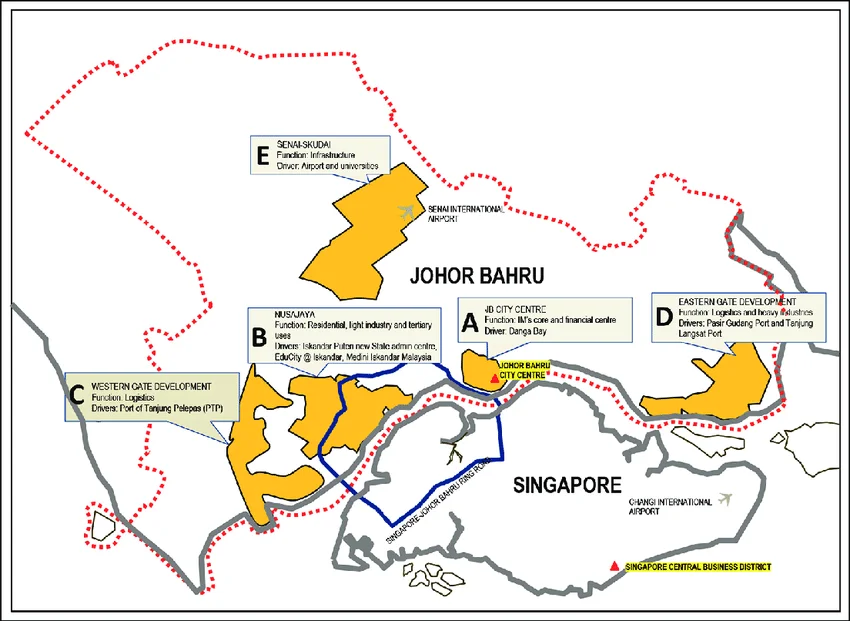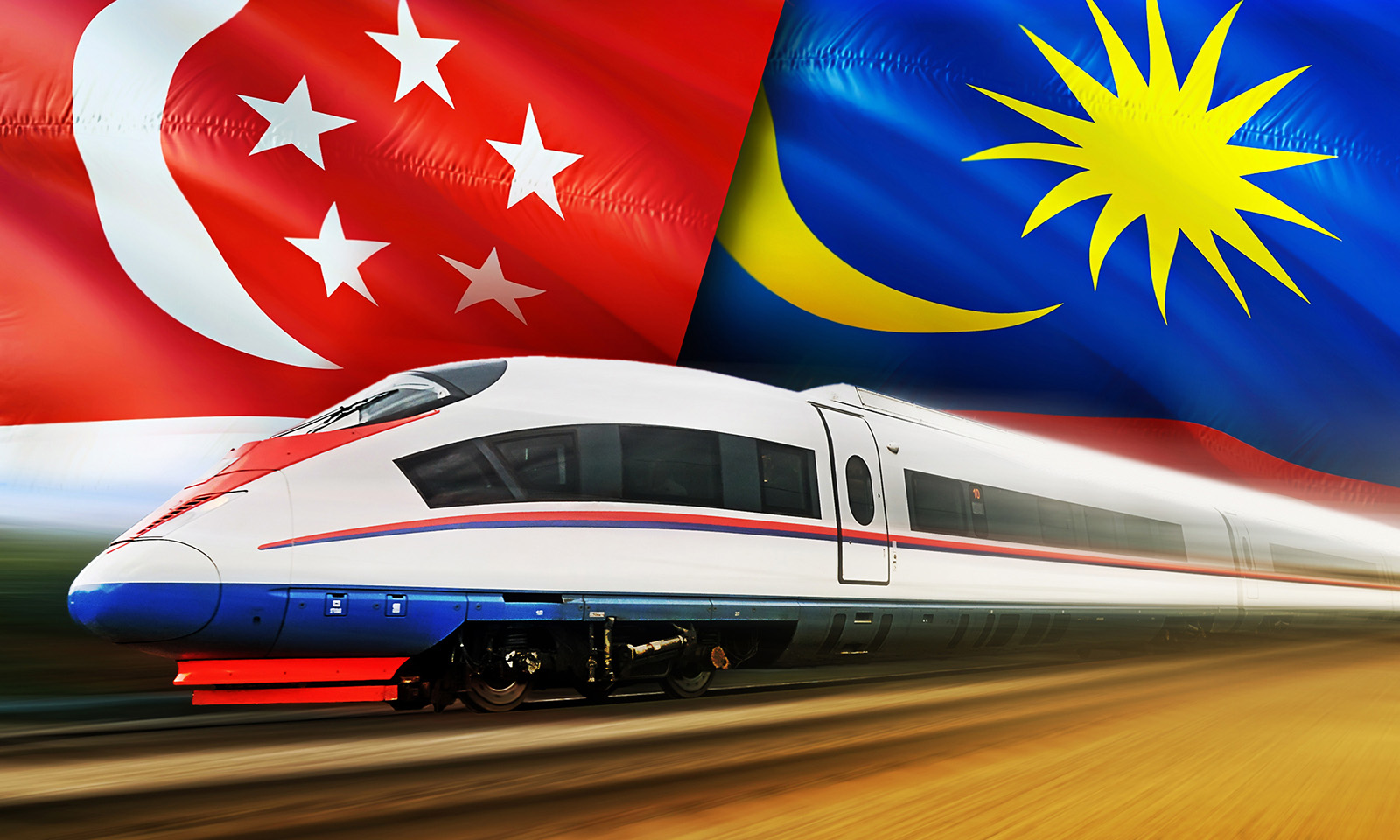The Johor-Singapore Special Economic Zone agreement promises to bolster Johor’s economy, enhance cross-border collaboration, and unlock new opportunities in key sectors.
The highly anticipated Johor-Singapore Special Economic Zone (JS-SEZ) agreement is set to be signed in Putrajaya today (Monday, January 6), Johor Menteri Besar Datuk Onn Hafiz Ghazi has confirmed. (Editor’s Note: The agreement appears to have been signed on January 7.)
The provisions of the agreement are expected to deliver a significant boost to Johor’s economy, with a strong focus on key sectors such as the halal industry and inbound tourism. Beyond that, it aims to enhance economic ties between Malaysia and Singapore, fostering growth and creating opportunities on both sides of the border.

ECONOMIC BENEFITS FOR JOHOR AND MALAYSIA
“This is not just beneficial for the people of Johor Bahru, but for all of Johor and Malaysia as well,” Datuk Onn Hafiz explained. He emphasized that the JS-SEZ initiative will not only strengthen economic and tourism prospects but also provide daily convenience for Johor and Singapore residents who regularly commute between the two regions.
However, he also issued a call to action, urging Johoreans to be ready to capitalize on the opportunities that the JS-SEZ agreement will unlock. “The question is whether we, the people of Johor, are prepared to seize this opportunity that could reshape the national economy,” he said. “If we are not ready, others may take advantage.”
The JS-SEZ aims to integrate the economic capabilities of Johor and Singapore, creating a platform for shared development. The economic zone is expected to encourage investments, facilitate the movement of goods and services, and create high-value jobs. Particular emphasis will be placed on the halal sector, which has the potential to tap into the growing global demand for halal products, and the tourism industry, which will likely benefit from increased cross-border travel and cooperation.
Originally slated for signing on December 9, 2024, the JS-SEZ agreement faced a delay due to unforeseen circumstances. Prime Minister Datuk Seri Anwar Ibrahim had earlier explained that the postponement occurred after Singaporean Minister Lawrence Wong contracted Covid-19.
Economy Minister Rafizi Ramli noted late last November that the draft agreement was in its final stages of review and was expected to be concluded by December. On December 4, Prime Minister Anwar further clarified in the Dewan Negara that the signing would now take place in January, ensuring all preparatory steps were completed.

AN ECONOMIC PARTNERSHIP WITH FAR-REACHING IMPLICATIONS
The JS-SEZ will likely serve as a model for international cooperation between neighbouring countries, particularly in strengthening economic interdependence. Its establishment aligns with Malaysia’s larger objectives of fostering growth and creating opportunities while bolstering regional ties. For Singapore, the agreement provides access to Johor’s land and resources, complementing its robust economy and opening up possibilities for further expansion.
While the JS-SEZ is anticipated to deliver long-term benefits, its success ultimately hinges on the readiness of the people and businesses in both Malaysia and Singapore to take advantage of the opportunities presented by this landmark collaboration.

WHAT MAKES THE JS-SEZ DIFFERENT FROM PREVIOUS EFFORTS?
1. Strong Government Support and Bilateral Cooperation
The Johor-Singapore Special Economic Zone (JS-SEZ) benefits from unprecedented high-level support from both the Malaysian and Singaporean governments. The initiative has been bolstered by working visits and stronger bilateral ties, as relations between the two nations reach a historic peak. Unlike the Iskandar Malaysia project, the JS-SEZ agreement has been officially signed by both governments, paving the way for more concrete follow-ups.
Additionally, a memorandum of understanding (MOU) signed in early 2023 underlines collaboration in personal data protection, cybersecurity, and the digital economy. A joint committee co-chaired by Malaysia’s Economic Minister Rafizi Ramli and Singapore’s Minister for National Development Desmond Lee has since identified several key areas for cooperation, including industrial development, tourism promotion, innovation, and connectivity improvements.
The SEZ and the revival of the High-Speed Rail (HSR) project also enjoy the endorsement of Malaysia’s current King, Sultan Ibrahim Sultan Iskandar of Johor, who has highlighted these projects as transformative for economic growth, investments, and development in the state.

2. Enhanced Infrastructure Connectivity
Infrastructure upgrades are at the heart of the JS-SEZ. The Rapid Transit System (RTS) between Johor Bahru and Singapore, expected to be completed by December 2026, will significantly enhance cross-border connectivity. With the land border between the two countries being one of the busiest in the world – accommodating an average of 350,000 daily travellers post-Covid – the RTS is poised to relieve congestion and streamline transit options.
The much-anticipated Kuala Lumpur-Singapore High-Speed Rail (KL-SG HSR) is also back in the spotlight. With seven consortia representing 31 companies submitting proposals, the project aims to link the Malaysian capital and Singapore, further boosting economic ties and accessibility. However, the financing model is under scrutiny, with a focus on private sector funding to avoid burdening the Malaysian government’s balance sheet – a key concern that led to the project’s cancellation in 2021.
3. Rising Investment Inflows
Johor is reaping the rewards of global supply chain diversification, positioning itself as a strategic alternative to Singapore or China in the “Plus One” approach. Under its “Maju Johor 2030 – Powering Johor into the New Economy” plan, the state government aims to steer Johor toward a new phase of growth.
The establishment of the Invest Malaysia Facilitation Centre (IMFC) in Johor this year is set to attract fresh investments. The Pengerang Integrated Petroleum Complex (PIPC) is also moving forward with its third development phase, slated for 2026-2031. This RM60 billion expansion will include projects such as solar farms, bio-refineries, and facilities for nitrile-related products.

Moreover, Johor has emerged as Malaysia’s newest data centre hub, with RM17 billion in investments expected in 2024 alone. A recent investment mission to Singapore by the Ministry of Investment, Trade and Industry (MITI) secured RM2.8 billion in foreign direct investments from two companies.
In terms of overall investment, Johor ranked as Malaysia’s fifth-largest destination in 2023, attracting RM20 billion between January and September. It trailed only Kuala Lumpur, Penang, Selangor, and Kedah, demonstrating its growing prominence as a driver of economic progress.
With strong governmental backing, groundbreaking infrastructure projects, and surging investment inflows, the Johor-Singapore SEZ represents a new era of opportunity for both nations. Positioned to foster innovation, enhance connectivity, and catalyze economic development, this initiative is set to redefine the trajectory of Johor’s economic landscape.

"ExpatGo welcomes and encourages comments, input, and divergent opinions. However, we kindly request that you use suitable language in your comments, and refrain from any sort of personal attack, hate speech, or disparaging rhetoric. Comments not in line with this are subject to removal from the site. "





















